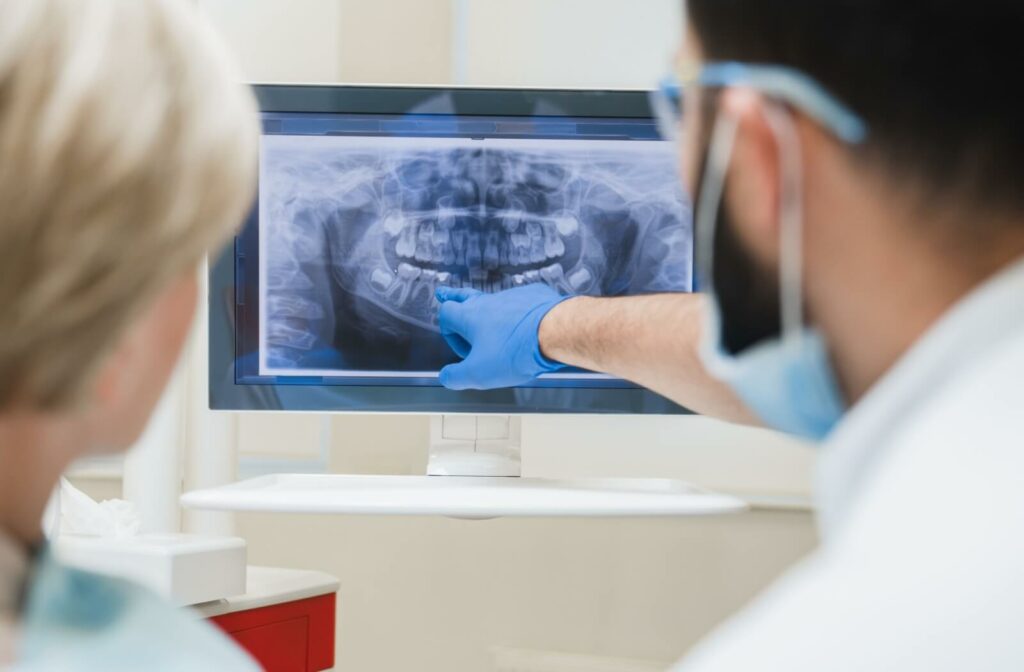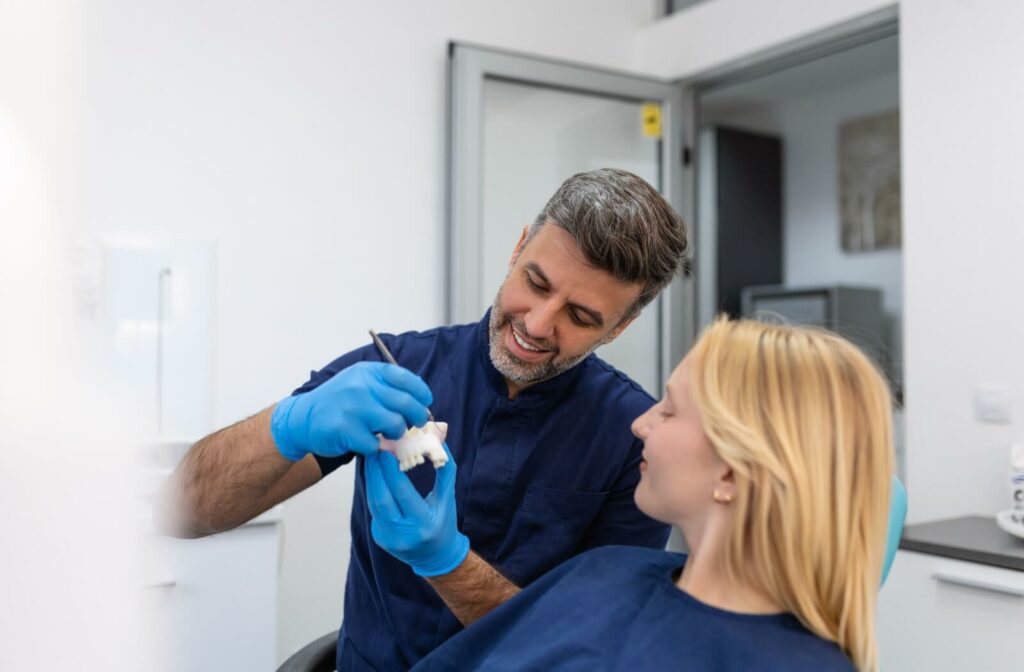Dental crowns are known to be a reliable and long-lasting solution for restoring damaged teeth, improving appearance, and protecting overall dental health. While they offer strength and a natural look, it’s important to remember that crowns aren’t meant to last forever. The lifespan of a dental crown depends on factors like the material used, your oral hygiene routine, and daily habits such as chewing or grinding.
Understanding what affects the longevity of your crown—and how to care for it properly—can help you get the most out of your treatment and keep your smile strong for years to come.
How Long Do Dental Crowns Last?
Dental crowns typically last between 5 to 15 years. Their longevity boils down to factors like the quality of the materials, the expertise of the dentist, and the patient’s oral hygiene routine.
While crowns are crafted to be durable, it’s important to note they are not immune to damage or wear over time. Regular checkups with your dentist will help them to remain in good shape and you to address any emerging issues early.
Factors Affecting the Lifespan of Dental Crowns
The longevity of your dental crown depends on several interconnected factors. Knowing these can help you maximize the lifespan of your crown:
Material of the Crown
Crowns are made from various materials, each offering distinct benefits and lifespans:
- Metal Crowns (e.g., gold or alloy): These are highly durable and less prone to wear and tear. They can last well over 20 years but are less common for visible teeth due to their metallic appearance.
- Porcelain Crowns: Popular for their natural look, porcelain crowns work best for front teeth. However, they are more brittle than metal crowns and may chip under pressure.
- Porcelain-Fused-to-Metal Crowns (PFM): These blend the aesthetics of porcelain with the strength of metal and are great for durability and appearance. However, over time, the underlying metal may become visible if the gums recede.
- Zirconia Crowns: Known for their remarkable strength and aesthetically pleasing appearance, these crowns are a top choice for blending durability with natural looks. They are resistant to chipping.
- Composite Resin Crowns: These are more budget-friendly but tend to wear faster compared to other materials.
Everyday Use & Wear & Tear
The placement of your crown can affect its longevity. Back molar crowns, for instance, experience more frequent and intense chewing forces compared to front teeth. Additionally, habits like teeth grinding, nail-biting, or chewing on hard objects can significantly shorten the life of a crown.
Quality of the Original Tooth
The health and stability of the underlying tooth and root can affect how long your crown will last. A strongly anchored crown with minimal damage to the surrounding area will wear down more slowly over time.
Fit & Placement
A poorly fitted crown can lead to issues like discomfort, food particle buildup, or decay underneath. An experienced dentist helps your crown form a snug, secure seal to prevent such problems.
Oral Hygiene & Maintenance
Neglected oral hygiene can lead to plaque buildup, decay, or gum disease around the crown. Regular brushing, flossing, and dental checkups are important to keep your crown and natural teeth in excellent condition.

Proper Maintenance to Extend Crown Longevity
While you can’t make your dental crown last forever, adhering to the right maintenance practices can help you maximize its lifespan.
Maintain Good Oral Hygiene
- Brush twice daily with a soft-bristle toothbrush.
- Floss gently to remove food debris and reduce plaque buildup.
- Use a fluoride toothpaste to strengthen the teeth underneath and around the crown.
Avoid Harmful Habits
- Stop grinding your teeth or clenching your jaw. If you’re prone to these habits, consult your dentist about a custom night guard.
- Avoid chewing ice, hard candies, or other tough objects that may crack or loosen the crown.
- Avoid using your teeth as tools to open packages or bottle caps.
Prioritize Routine Dental Visits
- Schedule dental checkups every six months. These appointments allow your dentist to monitor your crowns and identify any potential issues early.
- Professional cleanings help maintain the health of your gums and natural teeth, which support your crowns.
When Should You Replace Your Crown?
Even with proper care, crowns may eventually wear out or need replacing. Here are a few tell-tale signs to look for:
- Tooth discomfort: Discomfort around the crowned tooth could indicate underlying decay or damage.
- Visible damage: Chips, cracks, or worn-down crowns often need replacement.
- Loose fit: Unstable crowns that shift or feel insecure are at risk of falling out or letting in bacteria.
- Discoloration: If the crown no longer matches the surrounding teeth or its appearance changes over time, you might want to replace it.
- Changes in gum line: Receding gums can make the crown’s base or metal core visible, which may influence aesthetics and function.
Invest in Your Smile Today
Dental crowns are an investment in restoring your smile’s aesthetics and function. By understanding the factors that influence their durability and taking steps to care for your crowns, you can enjoy their benefits for years to come.
If you’re noticing signs of wear on your crown or simply want to learn more about the best options for your unique dental needs, the professionals at Upper Gage Dental Centre are here to help! Book an appointment today to ensure your smile remains as strong and radiant as you deserve.



